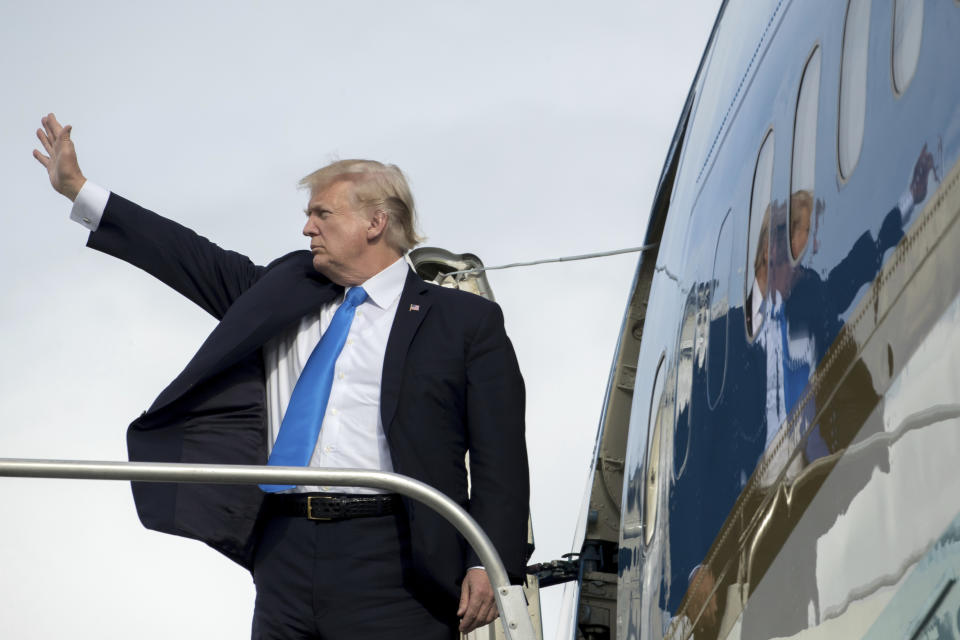Retail and inflation — What you need to know on Wednesday
The retail sector is a major focus for investors this week and Wednesday will bring us perhaps the biggest news day on this front.
At 8:30 a.m. ET, the October reports on retail sales and consumer prices will both be released from the government, with earnings highlights also expected to include Target (TGT) and Victoria’s Secret parent company L Brands (LB).
Tech giant Cisco (CSCO) is also set to release earnings.
Expectations for the October retail sales report is that we’ll see a tempering of consumer buying with October sales set to be flat after September’s post-hurricane figures showed the biggest one-month gain since 2015.
The latest reading on consumer prices should also show that prices rose 0.1% over the prior month and 2% over last year. “Core” consumer prices — which excludes the more volatile costs of food and gas and is more closely-watched by economists — are expected to rise 1.7% over last year, below the Fed’s 2% inflation target.

Tax reform and stocks
Throughout 2017, the stock market’s relationship — or lack thereof — to Republican plans to cut taxes have been a major source of investor discussion.
Namely, how good will tax cuts be for stocks, or do stocks need tax reform to keep going higher, or is the market already pricing in tax cuts.
But an angle we’ve discussed a couple times is whether right now is the best moment for tax cuts. On the heels of two straight quarters of 3% GDP growth, one could perhaps argue that the economy is starting to improve even without a boost from lawmakers. Another side of this line of thinking is whether now, after a big post-crisis rally in stocks and an economic recovering entering its ninth year, is really the best time to give corporate America what is essentially a handout.

Writing on his blog Calculated Risk on Tuesday, economist Bill McBride notes that the current economic environment — low unemployment, cycle-high economic growth, strong financial markets — is a time to be cutting deficits, reducing regressive taxes like the payroll tax, and increasing income taxes on the highest earners. The current GOP plan, of course, is the opposite of this.
The estate tax, which disproportionately impacts the wealthiest families despite claims that it’s really about helping farmers, has become a central point of contention in the tax reform debate. Most of the benefits of a tax overhaul accrue to businesses and, by extension, the shareholder class. And both the Senate and House plans, as currently constructed, will add over $1.4 trillion to the deficit over ten years.
On Tuesday, analysts at Goldman Sachs updated their outlook for tax reform’s hopes, saying they now put an 80% chance on some package getting signed into law early next year. Though of course, there is still a long way to go on particulars.
Reports on Tuesday afternoon indicated that the Senate’s plan for overhauling the tax code will include a repeal of the Obamacare mandate that Americans must have health insurance. This will bring Congress’ biggest legislative headache this year — their efforts, and failure, to repeal and replace Obamacare — back into focus.
And don’t forget that industries ranging from private equity to venture capital have voiced their concerns over outlines of a tax plan that take away key elements of how they fund their operations.
All for the benefit of large corporations.
Yahoo Finance’s Rick Newman framed this as a tax cut that favors favors robots over workers, which is a way of saying that the tax plan favors capital over labor. Right at a point in the economic cycle when labor appeared ready to reassert its leverage against capital with the unemployment rate flirting with 4% and indications that wages are set to rise.
A final version of the tax plan might limit 401(k) contributions from older workers, or repeals a key part of Obamacare, or that repeals that state and local tax deduction used in high-tax, but largely blue, states like New York and California.
But any plan that gets through Congress within the next six months will have lower corporate taxes as its defining feature and its main source of revenue that need be recovered through other avenues. And the benefits to big business will accrue first to its shareholders. Then maybe, you and me.
—
Myles Udland is a writer at Yahoo Finance. Follow him on Twitter @MylesUdland
Read more from Myles here:


